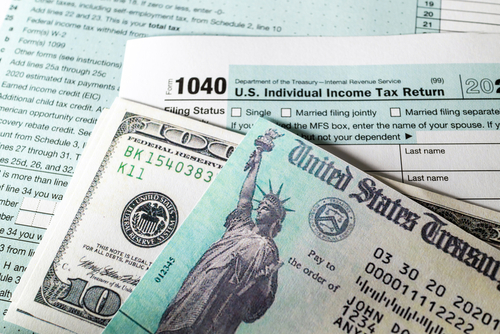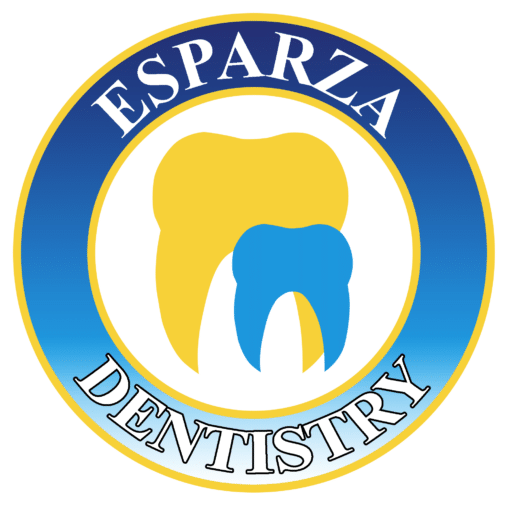According to the Pew Research Center, 60% of Americans aged 30-64 feel that their tax payments are a burden. If you dread tax season, you’re not alone. Doing your taxes requires navigating the language of tax documents and decoding complex rules. Fearing mistakes or feeling like your contribution is too high can make tax filing a frustrating experience. However, there’s a silver lining that might surprise you: You can deduct certain medical and dental expenses, reducing your taxable income and saving you money. This includes payments for dental implants and mini dental implants, which are tax deductible under certain conditions. Keep reading to learn more!
Dental Implants Are Tax Deductible!
Under IRS tax topic 502, you can deduct specific medical and dental expenses from your taxes. If you paid out-of-pocket expenses for yourself, your spouse, or a dependent, you may be able to take advantage of this benefit. So, what qualifies exactly? You can deduct the cost of any medical or dental procedure that was performed to diagnose, treat, or prevent a disease or issue affecting the body’s structure or function. False teeth, including dentures and dental implants, fall into this category.
To take advantage of these benefits, you’ll need to itemize your deductions. This process may be new to you. If you’ve only ever claimed the standard deduction, we recommend meeting with a tax professional who can guide you through the process.
Payments for dental implants are tax deductible as long as they are more than 7.5% of your adjusted gross income (AGI). Your AGI is your total income minus adjustments, such as student loan interest, retirement plan contributions, alimony, educator expenses, and other specific payments you’ve made throughout the year. You calculate this each time you file your tax return.
If you’re interested in taking advantage of dental implant tax benefits, you’ll need to determine your deductible amount. To do this, you’ll calculate 7.5% of your AGI. Any payments over this amount are tax deductible. Let’s look at an example: If your AGI is $55,000, then 7.5% of your AGI is $4,125. Any payment you made for dental implants over this amount is tax deductible. That means if you paid $10,000 for your procedure, you can write off $5,875 (that’s $10,000 – $4,125).
When Are Dental Procedures NOT Tax Deductible?

It’s important to note that this tax benefit has certain limitations. The deduction does NOT apply to any amount covered by insurance or otherwise reimbursed.
Additionally, the expenses are not deductible if you paid for the procedure with a health savings account (HSA). This is because HSA contributions are already pre-taxed, meaning that you have already received a tax benefit if you paid for medical or dental procedures using your HSA account.
Is Itemizing My Dental Expenses Worth It?
Deciding whether to itemize your dental expenses on your taxes depends on a few factors. While claiming the standard deduction may be less complex, you may not receive all the benefits you are entitled to.
If your dental and other medical expenses are more than 7.5% of your AGI, and if adding these to your other deductions is more than the standard deduction amount, itemizing could save you money. In other words, itemizing can offer more financial benefit if you have significant medical and dental expenses. It’s worth comparing both options or talking to a tax professional to see which method gives you the biggest savings.
How to Claim Your Dental Implant Deduction
If you want to take advantage of the IRS topic 502 tax benefit, you’ll need to follow these steps:
- Determine your eligibility: Ensure that your dental implants qualify as a deductible medical expense. Remember, you can deduct unreimbursed medical and dental expenses that surpass 7.5% of your adjusted gross income (AGI).
- Gather documentation: Collect all receipts and documents related to your dental implant procedure. This includes invoices, payments for any related prescriptions, and any other costs incurred as part of the treatment not reimbursed by insurance. While you don’t need to send receipts and documents with your tax return, you should keep them for your records. The IRS may request them if your return is selected for review.
- Itemize your deductions: To claim the deduction, you must itemize deductions on your tax return using Schedule A (Form 1040).
- Calculate your deductible amount: Add up all qualifying medical and dental expenses for the year. Subtract 7.5% of your AGI from this total. The remaining amount is what you can potentially deduct.
- Fill out Schedule A: On Schedule A, report the total amount of your medical and dental expenses on the line designated for medical and dental expenses. Follow the instructions provided for Schedule A to fill out this part correctly.
Navigating the complexities of tax deductions, especially for medical and dental expenses, can be intimidating. If you’re not confident handling your tax return or want to ensure you’re maximizing your deductions, seeking professional tax guidance is a wise choice. A tax professional can provide tailored advice, help you navigate IRS rules, and ensure your tax return is accurately prepared. This peace of mind can be priceless come tax season!
Schedule a Free Consultation to Learn More About Dental Implants
Replacing missing teeth with dental implants offers many benefits. Implants are the only tooth replacement option that prevents jawbone loss. Their fusion with the jawbone and use of high-quality materials means they can last a lifetime with proper care. Compared to other tooth replacement options, dental implants provide the best outcomes in terms of appearance, comfort, and function. Mini dental implants, specifically, are less invasive, deliver quicker results, and are more affordable than traditional implants. Plus, you can now enjoy tax benefits when you choose dental implants!
If you’d like to learn more about dental implants, please schedule a free consultation at Esparza Dentistry today!
